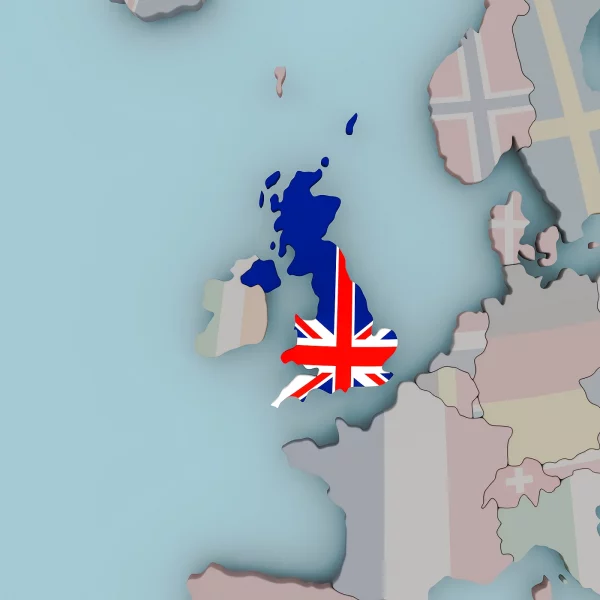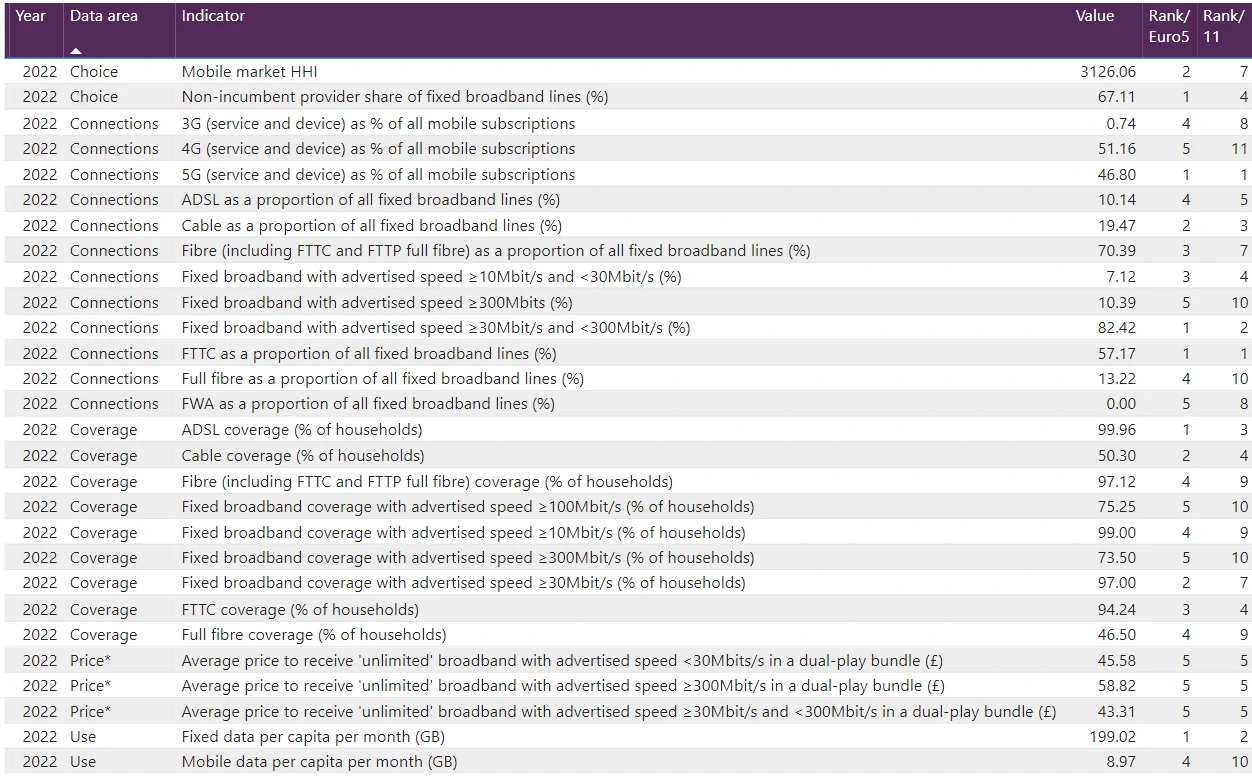Ofcom UK Scrap International Broadband Scorecard Comparison

The telecoms regulator, Ofcom, has quietly scrapped another fixed broadband related performance report – this time it’s their annual international comparison, which pits the United Kingdom’s broadband and mobile connectivity against the EU’s major economies (France, Germany, Spain and Italy etc.) and some other large countries.
Ofcom has been publishing the International Broadband Scorecard since 2013, which examined various connectivity metrics like network availability, take-up, use and prices of fixed and mobile broadband performance across countries for the purpose of measuring and comparing against the UK’s relative performance.
The non-UK data for these reports was typically sourced from a third-party provider (Omdia-Informa Tech), which was appointed following a competitive tender process. But the regulator has decided that as international data is available from Omdia-Informa Tech and similar telecoms research companies (albeit for a fee), “it is [our] view that stopping the publication of the International Broadband Scorecard will not hinder stakeholders’ ability to benchmark the UK broadband market internationally.”
Advertisement
In our view the move, which looks like another cost-cutting measure, is somewhat of a negative as it did provide a useful point of annual comparison. On the other hand, Ofcom weren’t particularly good at promoting the reports, which often ended up being hidden away as an editorial footnote (we missed this year’s report for precisely this reason – it was never spotted).
The good news is that the European Commission does still publish a reasonably wide-ranging annual report (here), which can be used to help compare the UK with at least the EU states. Otherwise, a summary of Ofcom’s final 2023 scorecard can be seen below, or you can check out the interactive report online. But much of the data is from late 2022, which is quite old (a common problem when trying to do any large international comparison).
UK Summary Table

Advertisement
Mark is a professional technology writer, IT consultant and computer engineer from Dorset (England), he also founded ISPreview in 1999 and enjoys analysing the latest telecoms and broadband developments. Find me on X (Twitter), Mastodon, Facebook, BlueSky, Threads.net and Linkedin.
« Southport Residents Block Street to Stop Openreach Pole Build
Virgin Media O2 Takes UK Fibre Broadband Network Wholesale »






















































Likely not only a cost saving measure, but also as it’s increasingly embarrassing, with the UK falling further behind other developed (and developing) countries.
Hopefully this now fourteen year period of decline with a latterly concurrent near eight year period of chaos, will soon be put to an end, though it’ll in all odds take at-least as long to put right what has been put wrong.
I know this is bait but go on, I’ll bite… Even the most cynical, subjective assessment of the scorecard over the last few years would find that the UK has been generally climbing the rankings.
What rankings would that be? Have you tried using mobile data recently?
Ignorant comment tbh. 2024 is the year that we’re going to see hundreds of thousands of addresses passed every month in the UK from here on out. I doubt the UK’s stats will be embarrassing by the close of 2024. Hardly something worth moaning about.
@Martin Carlsson for fibre to the door? Yes improvements will be made this year but we will also still have streets where fibre is available down one side and not the other, also we have a lot of areas served by one provider only which is not a solution nor how the competition regulations are meant to operate in this country.
But with mobile we are a laughing stock, new masts or equipment required to boost cellular speeds are rejected at shocking rates and regularity due to very questionable objections, even from those outside the area sometimes. So on the one hand you are right to an extent on the other you are not.
In fact it’s most likely a part of the reason they dropped the report, to hide these facts.
The fixed broadband comparison really had very little to say about mobile speeds. The clue is in the name.
This is not only confined to Ofcom. The Office for National Statistics no longer supplies data to Eurostat, the EU’s statistical body which publishes country comparison data for the EU and non-EU states including Switzerland, Iceland and Norway. This occurred post-Brexit and I rather expect was designed to hide the UK’s deteriorating position vis a vis those countries. As for Alex’s comment above, yes the UK has been rising on the availability of full-fibre, but falling on the percentage of consumers actually taking a service compared to comparable countries and as for 5G, let’s just say we’re lousy.
ONS stopped reporting to Eurostat as requires some negotiation: the TCA only indicates a desire to share the data not how it should actually happen.
The Ofcom reports are data flowing the other way and not through Eurostat but a non-governmental third party. The private sector obtains information for international comparison as required.